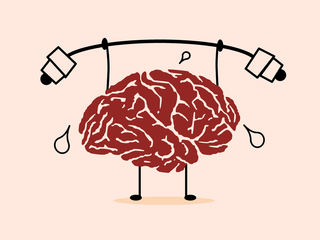Education
Implicit Intelligence and Learning New Cultures
Behind-the-scenes mechanisms of learning that happen outside awareness.
Posted February 28, 2022 Reviewed by Jessica Schrader
Key points
- Implicit intelligence is the ability to pick up complex patterns from the environment without trying to do so.
- For learning new cultures, implicit aptitude may be more important than explicit aptitude such as IQ.
- One of the best ways to activate our implicit mechanisms when learning new cultures is through exposure.

One of our lifelong love affairs as humans is learning. Even the “pain” which, as per Aristotle’s observations, accompanies learning doesn’t deter us. In the name of growing our minds and skillsets, we roll up our sleeves, sharpen our focus, read, move, watch, listen, persevere, and repeat. As the hours swirl by, the neurons in our brains rearrange, and then, suddenly, we are playing Beethoven, winning a game of chess, and skiing down a slope without tumbling.
Many of our skills are acquired through reinforcement learning—a form of learning that is based on rewards and punishments. This learning mechanism is reflected by the firing of dopamine neurons in the brain’s reward system (ventral tegmental area and striatum). Neurons in this system respond to surprises in our environment and fire vigorously if these events predict rewards. Scientists can even use reinforcement learning algorithms to train AIs to acquire new skills.
Learning Outside Awareness
Interestingly, the tireless effort-ing we commit to on our way to the fluency of any new skill works in concert with a certain non-doing. For example, long after we have put aside our books and stepped away from our musical instruments, our brains carry on the undertaking by consolidating our memories while we sleep. The learning that occurs outside our conscious awareness is an important, yet often overlooked, piece of the puzzle of how we, explicitly and implicitly, absorb seemingly endless amounts of knowledge.
Krishna Savani studies how implicit intelligence—the ability to pick up complex patterns from the environment without trying to do so—helps people learn new cultures. One of the most surprising insights from his research is that when it comes to learning cultures, a high IQ doesn’t necessarily provide too many benefits. In fact, sometimes it may even hinder performance. “Culture is too complex, too nuanced to learn explicitly through guidebooks and lists of dos-and-don’ts,” he says.
Instead, what helps people acquire a deep and substantial understanding of a new culture is interacting with locals. The reason, Savani explains, is that this kind of exposure activates the brain’s implicit learning mechanisms, which is also one of the precursors of intuition.
Implicit learning, which is activated outside our conscious awareness, relies on the same neural mechanisms as reinforcement learning. Once considered a human constant and an evolved ability, researchers such as Savani have now discovered that individual differences in implicit aptitudes can systematically predict real-world outcomes.
Quantifying implicit intelligence is not as straightforward as measuring explicit aptitudes such as IQ. However, multiple tasks exist to measure implicit intelligence, such as artificial grammar learning and serial reaction time tasks. According to Savani, we can catch glimpses of our implicit aptitudes when learning new languages. For example, if from mere exposure, you are picking up the nuances of various dialects and accents of a foreign language without consciously trying to learn them, then you likely have high implicit aptitudes.
Here is Savani, in his own words, on the mechanisms that implore implicit learning.

Learning by Doing and Non-Doing: A Timeline of New Culture Fluency
In new cultural environments, the learning process begins with observation. Overall, cultural norms are too complex and nuanced for us to consciously deduce appropriate behaviors for each situation. Thus, when it’s time for us to act, we mostly rely on trial and error.
If our behavior is not entirely in accordance with the local norms (for example, if we are talking loudly and taking up a lot of space on a train in densely populated Japan), the feedback we’ll receive from others will likely be in the form of slight gestures or facial expressions. After enough exposure, our implicit learning systems will figure out right from wrong, and only then, the knowledge will become crystallized enough to rise to our consciousness (that is, it’s better not to take up much space or talk loudly in Japanese public transport). Oftentimes, the conscious realization of the correct behavior will come after we have already been behaving appropriately for some time.
IQ vs. Implicit Intelligence
Explicit and implicit aptitudes are either uncorrelated or only weakly correlated. Explicit aptitude (e.g., IQ) is how well you can pick up knowledge and skills by conscious application. You use it when you are consciously trying to learn something. Implicit aptitude is how quickly you incidentally pick up recurring patterns from the environment without trying to do so. For example, when people have high implicit aptitude in the language domain, they may pick up different accents and linguistic idiosyncrasies even without consciously trying to do so.
For culture learning, implicit aptitude is more important than explicit aptitude. In fact, the harder you think about the infinite amount of subtle cultural norms and the more you consciously try to figure out the right way to act in various settings, the more likely you will be frustrated; you might even disrupt your brain’s implicit learning systems. IQ is useful in situations in which the cultural norm is simply and uniformly applied.
For example, whether or not you should remove your shoes before entering someone’s house isn’t a very nuanced decision—in some cultures, like Japan, people are expected to remove their shoes, and in other cultures, like Europe, people are not expected to remove shoes. But for the more intricate social interactions, trying to deliberately work out the most appropriate behavior is practically impossible. And it might even prevent your implicit learning systems from automatically capturing the right cues in front of you.
Metacognitive Proclivity Boosts Learning
Implicit metacognitive proclivity refers to the ability to naturally reflect on past actions without explicitly analyzing them. Research has shown that this kind of implicit metacognition helps us learn foreign cultural norms.
To study this in our lab, we presented participants with two choices after they made an error while completing a task. In one condition, right after they had made an error, they saw a “Please wait while the screen loads” message. This way, we gave participants time to reflect on what had just happened without telling them to think about their error. In the other condition, the message on the screen explicitly told the participants to think about their mistakes for a few moments.
Our results showed that participants who thought explicitly about their mistakes didn’t improve as much as those who used implicit metacognition. In other words, participants who gave their brains downtime to process what had happened—without trying to consciously analyze their mistakes—performed better.
Implicit Intelligence and Leadership
Companies often perform various evaluations for their employees, including personality, IQ, and EQ tests, before sending them on assignments abroad. But most don’t know about the importance of implicit aptitude when it comes to learning cultures. In my opinion, implicit intelligence might matter as much as these other forms of intelligence. If a group of people is similarly qualified for an ex-pat assignment, those with the highest implicit aptitude will probably fare better in new cultures.
This is also true for executives in managerial positions. If you have a good sense of complex recurring patterns in your environment, you can have a more holistic view and understand what’s best for the organization, even if the facts point elsewhere. Implicit intelligence is about pattern recognition in order to inform decisions. This applies to executives making complex decisions as well as to anyone learning new cultures.

Advice for Learning New Cultures: Don’t Try Too Hard
While we still don’t have much data on how to train implicit intelligence, we know that in order to activate our implicit mechanisms when learning new cultures, we need exposure. Interact with the locals. Let your implicit systems receive feedback from subtle social cues. Get exposed to the surrounding culture. This will help you pick up nuances about the norms and the language that would not otherwise be available to you in any books. Importantly, don’t try to think consciously too much about how to correctly navigate the new cultural terrain. Even though you may feel like you are making many faux pas or you don’t have a good handle on the culture, don’t worry. Let your implicit learning system do its work.
For all of us committing our grit and time to opening our minds—whether by learning new skills or new cultures—it’s heartening to know that our ever-insightful companion, our implicit intelligence, has our backs.
Many thanks to Krishna Savani for his time and insights. Dr. Savani is the Provost’s Chair in Business, Associate Professor of Leadership, Management, and Organization, Associate Professor of Psychology, and director of the Culture Science Institute at Nanyang Technological University.
References
Savani, K., Morris, M. W., Fincher, K., Lu, J. G., & Kaufman, S. B. (2022). Experiential learning of cultural norms: The role of implicit and explicit aptitudes. Journal of Personality and Social Psychology.
Morris, M. W., Savani, K., & Fincher, K. (2019). Metacognition fosters cultural learning: Evidence from individual differences and situational prompts. Journal of Personality and Social Psychology, 116(1), 46.
Schultz, W., Dayan, P., & Montague, P. R. (1997). A neural substrate of prediction and reward. Science, 275(5306), 1593-1599.
Schultz, W. (2016). Dopamine reward prediction error coding. Dialogues in Clinical Neuroscience, 18(1), 23.
Botvinick, M., Ritter, S., Wang, J. X., Kurth-Nelson, Z., Blundell, C., & Hassabis, D. (2019). Reinforcement learning, fast and slow. Trends in Cognitive Sciences, 23(5), 408-422.
Walker, M. P., & Stickgold, R. (2004). Sleep-dependent learning and memory consolidation. Neuron, 44(1), 121-133.




